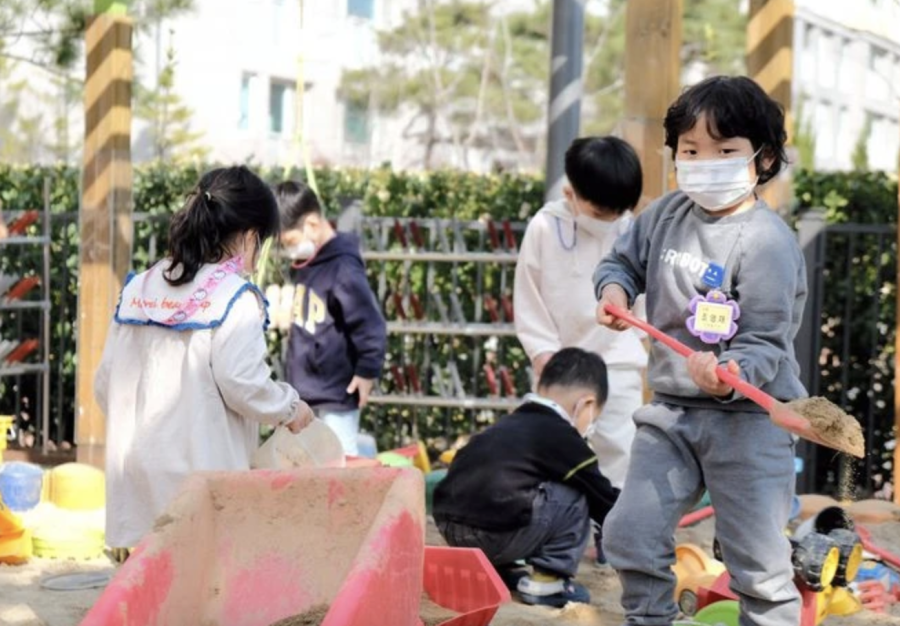Assessing South Korea’s Declining Fertility Rate
May 23, 2022
Since the 1950s, the world has experienced a general downward trend in birth rate due to factors including declining child mortality, rising age of marriage, and more. This drop in birth rate is a severe problem in South Korea, which set the lowest recorded rate of 0.84 children per woman in 2020.
This meager birth rate in South Korea can be attributed primarily to the nation’s competitive tendencies, Confucian principles on gender roles, and an unfavorable environment for pregnant women and mothers.
Socio-economic striving seems to be a significant cause of the low birth rate in South Korea. Many parents seek to send their children to elite universities in Seoul and do so by registering their children into cram schools. These cram schools weigh heavily on family budgets, compelling families to have only one child if they choose to have any.
However, entering a prestigious university is only the beginning — upon graduation, young adults enter a world of even fiercer competition in the fight to find solid jobs. Being located in Seoul is crucial: the nation’s political, economic, and social center, the capital city is home to nearly half the population. As a consequence, though, the cost of land is also high.
Such challenging economic conditions create a dire situation in which adults struggle to secure their own welfare, much less that of a whole family, inevitably dissuading many from having children.
Traditional ideas regarding women’s role in society discourage many women from having children. South Korea has a deep cultural affiliation with Confucianism, in which patriarchy is stressed, and women are expected to stay at home and take care of their children. As this traditional expectation becomes incompatible with modern womens’ professional aspirations, many are beginning to relinquish marriage and childbearing, further contributing to the low birth rate.
In an interview with the New York Times, university student Lim Yu-jin stated, “If I have to choose between having a career and raising a child, I have no doubt whatsoever that I will choose my career. I am not going to let child-raising block my career.” This quote paints a blunt portrait of the world Korean women live in — deep-rooted Confucian principles prevent women from attaining both motherhood and career. Lim’s determination represents that of many other women today who decide to prioritize their professional ambitions over a potential family.
Another major contributor to the strikingly low birth rate in South Korea is the outdated and largely unfavorable environment that pregnant women and mothers are forced to endure. The Guardian reported that Seoul’s government advised women to be diligent in their housework to avoid gaining weight, and to prepare enough meals and clothes for their husbands to sustain themselves while they were in labor.
South Korea also faces high childcare costs and inadequate public childcare facilities. According to Gavin W. Jones, in conjunction with the expectation for women to stay at home, this problem makes childcare a taxing and full-time job, and forces women to give up their careers. In addition, outdated societal norms consolidate marriage as a prerequisite for childbearing.
The societal expectation for women to stay at home, as discussed before, discourages many women from marriage, and since childbearing without marriage is stigmatized, many forego motherhood as well. These circumstances all contribute to a lessened desire for women to marry and have children.
In light of this dark reality, drastic societal change is imperative to maintain South Korea’s population. In regard to government policies designed to raise the birth rate, the Korea Times stated that South Korea “is not a good place to live in, so passing down the burden to our children is not preferable.”
The consequences of a declining birth rate are already present — South Korea’s population has begun a downward trajectory. In order to improve the situation, perhaps the underlying problems must be addressed first. Without systemic change in South Korean society, we can expect no improvement in birth rate.




















